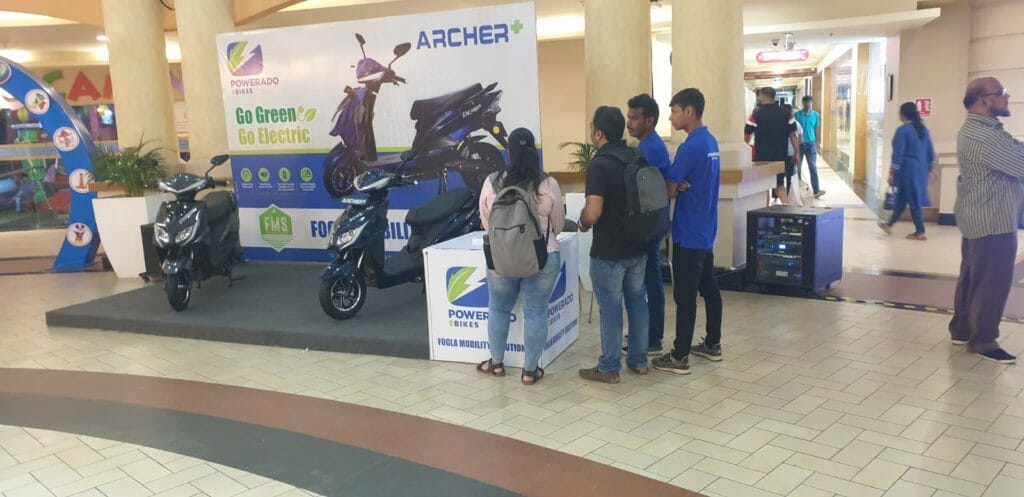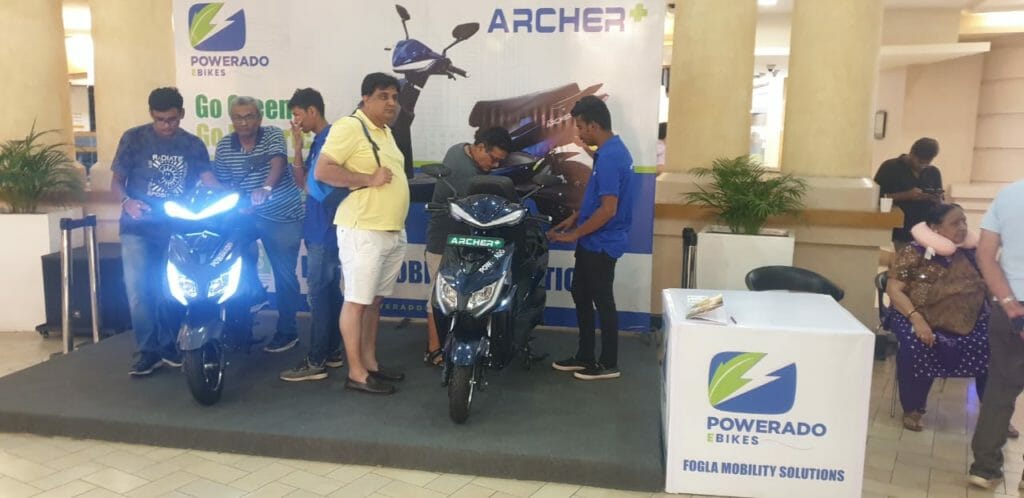On September 23 2022, a seven-year-old boy was killed when the battery of the Electric Vehicle (EV), which his father had kept for charging, exploded on him at their Vasai residence. While this unfortunate incident led to the loss of an innocent life, electric vehicle fires have been regularly reported in newspapers raising concerns about EV safety.
Exact figures of EV vehicles (cars and bikes) catching fire or their batteries exploding are not available for Mumbai. Earlier, fire in a Tata Nexon EV at Vasai on June 23, 2022 had prompted the Union government to issue notices to all EV manufacturers demanding better quality control standards and also formulating procedures on battery certification to ensure EV safety safeguards against EV fires.
The Maharashtra government has intervened strongly on this issue after such mishaps were reported. Earlier this month, the government brought out an advisory on standard operating procedures (SOPs) to be followed by EV vehicle owners, charging stations and even housing societies while handling and maintaining EV charging stations. The government has already set up a committee to study and prevent EV fires and the SOPs were brought out following deliberations of that committee.
“The SOPs are meant to assuage the concerns and anxieties of various stakeholders regarding EV safety. The advisory is a result of inputs and deliberations from various stakeholders and multiple government departments including the fire brigade, transport, traffic and the Brihanmumbai Municipal Corporation,” explained Dinesh Khonde, chief electrical inspector from Maharashtra’s energy department.
Maharashtra has been at the forefront of introducing measures for EV safety, having the country’s second highest number of EVs. It has 11.3 % of the country’s EVs with about 300 EVs being registered every day. About 35,259 EVs were registered between April – July, 2022 as compared to 51,423 in the entire financial year of 2021-22. It was also the first state to bring out an Electric Vehicle Policy, 2021 to govern regulations regarding EVs.

Read more: Interview with Sudhir Badami: How transport in Mumbai is evolving
What causes the fires and compromises EV safety?
“We found that most of the instances of EV fires were caused either due to mishandling of batteries or due to improper charging. Many stakeholders including the Brihanmumbai Municipal Corporation (BMC) wanted the state to intervene. This is because many housing societies were either resistant or reluctant to allow charging stations within their housing complexes due to EV safety concerns. Hence, such guidelines were brought out to assuage their fears,” explained Khonde.
Channel partner of Powerado ebikes, Vikram Fogla, owner of Fogla Mobility Solutions, which deals with selling ebikes across Maharashtra, says though it is difficult to pinpoint the exact cause, most of the EV fires could essentially be traced to not following basic norms of EV safety. He says accidents are often caused by mishandling of its battery, which is the heart of the vehicle.
“The EVs are quite safe and easy to manage if they follow basic simple norms. It could be something as simple such as not charging an EV soon after a long trip, when the battery could be hot. Or to not send it for car washing, where jet splash could lead to water seeping into its battery. Buy certified vehicles and approved spares only from authorised dealers. Avoid alterations or cheap imitations of any brand to ensure safety. It is only the few bad players who bring a bad name to the market,” he says.
Experts say cheaper uncertified batteries could endanger human life and compromise on the EV safety standards as they could be less resistant to heat or power fluctuations.
“These SOPs are welcome since many people fail to follow basic norms despite clear instructions. It is also important to charge batteries in the open spaces, preferably in vehicles in their parking lot, preferably away from the reach of children. One should not charge batteries, where risk of voltage fluctuations or short circuits is high. That could spark explosions. Most importantly, use batteries certified by ARAI (Automotive Research Association of India)” suggests Fogla.
What is the government doing about EV Safety ?
The Union government, has been aggressively pushing for EVs as an economic, environment-friendly alternative to the fossil fuel vehicles in a bid to decarbonise the transport sector. It has already sent notices to EV manufacturers demanding various amendments and upgrades to ensure better EV safety.

The fire department too, which ends up dealing with all such fires, is in the process of bringing out more SOPs. Mumbai’s chief fire officer Hemant Parab explains that unlike regular fires, these EV fires consume a lot more water to douse and chances of reigniting are higher due to its peculiar property of thermal runaway.
The Mumbai fire brigade is also in the process of procuring extinguishers specifically to deal with such EV battery fires. Parab says many EV fires have occurred mainly due to substandard batteries.
The Regional Transport Office (RTO) has already been acting against EVs that illegally alter motors to upgrade speed in low-speed E-bikes and compromise on safety standards.
In a meeting held in June 2022, the then state transport commissioner had raised the issue of how low-speed EV bikes that were exempted from vehicle registrations were illegally tampered. The bikes were fitted with batteries with a capacity beyond 250 amp to raise their speed beyond the approved 25 km/ hour. This, he said, was compromising on passenger safety standards.
In the same meeting, minutes of which are available with Citizen Matters, the Maharashtra EV Manufacturers Association had argued that the instances of EV fires in low speed e-bikes were negligible despite them being sold for more than 14 years. They had also questioned the action on such low-speed bikes, wondering why Maharashtra was the only state where such action was being taken.
Read more: How the electric Yulu bike is faring in Bandra West
Have EV safety concerns dampened the enthusiasm of EV users?
Mihir Gandhi, a marketing professional, who purchased an electric car a month back, is unfazed by the series of EV fires that he reads about in newspapers and has no regrets about his decision. “I ventured into EV after a detailed study and weighing in various factors, including discussions with many other contemporaries, and I am convinced that it is a one-off incident,” he says.
Anup Sharma, a Chartered Accountant feels that branded and good quality EVs are quite safe. He says that the accidents generally tend to happen only with substandard batteries, where people may have compromised on quality for price.
What attracts people to EV over regular fossil fuel vehicles?
While the government may be pushing for EV vehicles as an environmentally-friendly option, for the buyers and users, the main attraction is the low fuel costs and the convenience.
“There are huge savings on fuel. A person plying say 70-100 kms per day could, who would have normally spent Rs 6000 monthly on petrol, might spend a maximum of Rs 500 monthly on electricity charges. Not surprisingly, most of the delivery executives these days prefer e-bikes that get them huge savings. With e-bikes being available upwards of Rs 70,000, you can pay-off your entire vehicle loan @ EMI of Rs 3500 in practically two years’ time,” explains Fogla.
Sharma computes that as compared to spending about Rs 5/ km for fossil fuel and maintenance, he barely spends 25 paise for every km in his EV. Besides, EV rides are very comfortable and fare high on parameters like noise, vibration and harshness since there is no fuel combustion involved, he says.
Gandhi, who used to spend Rs 20,000 monthly on fuels, realises that he covers the same distance on his electric car at much lower costs. “I charge my e-car in my society parking slot, which is connected to my own electrical meter. Four hours of charging gives me charging for 400 hours lasting enough for the week. My electric bills should cost me about Rs 350 per charging and not more than Rs 3000 monthly, which means that my e-car works out cheaper than taking an auto for the same distance,” he says.
Gandhi says that a support system has already developed around the EV and that helps. “Information is available online about the locations of various charging points that could help me plan my long-distance journeys well. Besides, the manufacturers provide convenient maintenance care. In case of any breakdowns, they offer mechanical support and even offer vehicle pick-up and drop-off facility,” explains Gandhi.